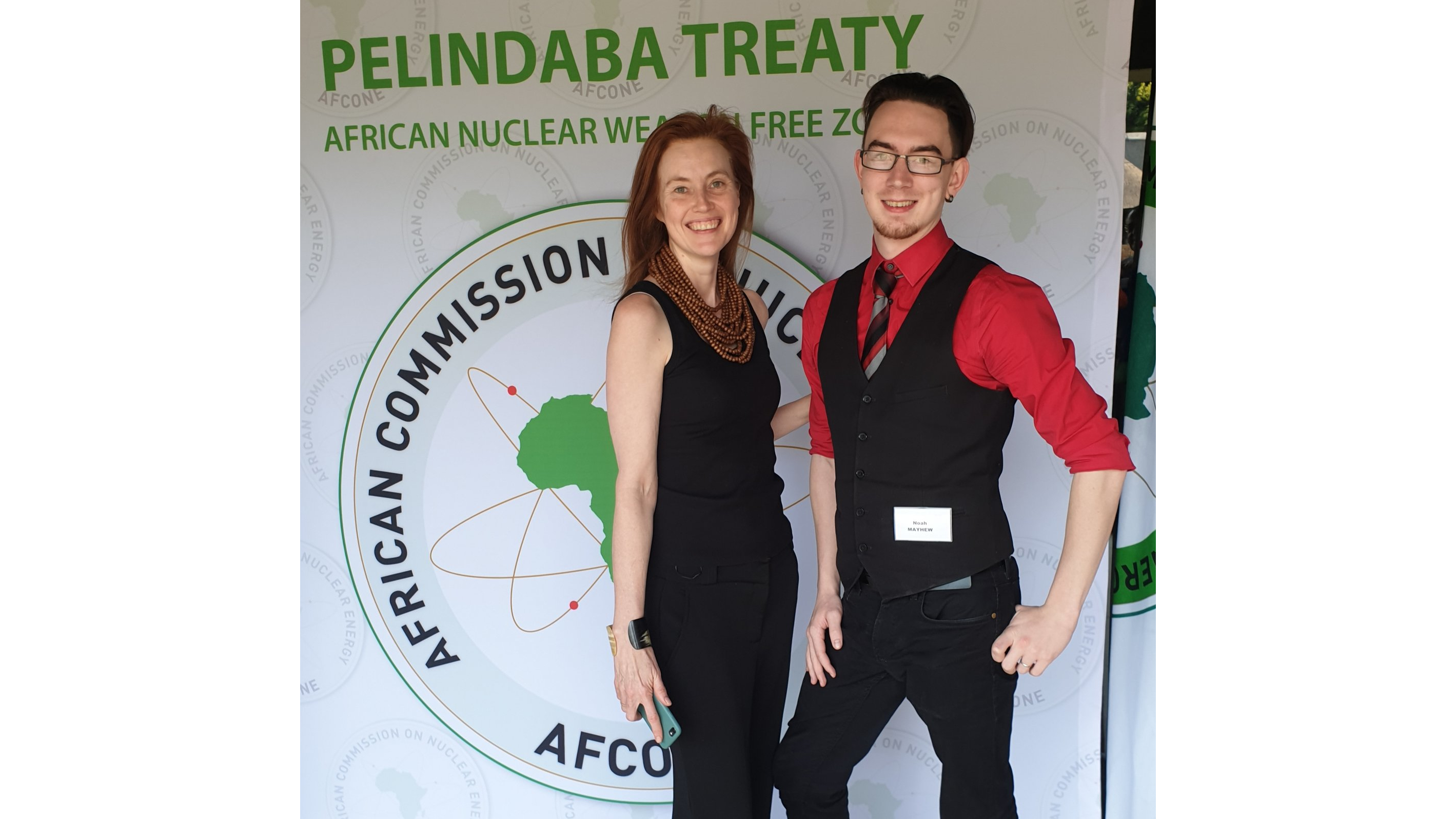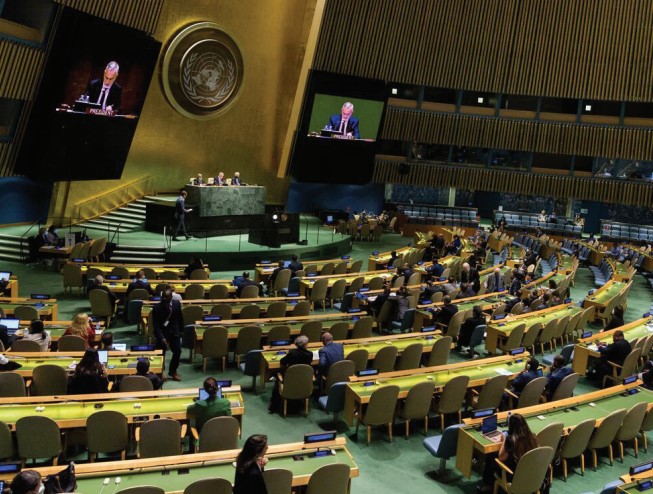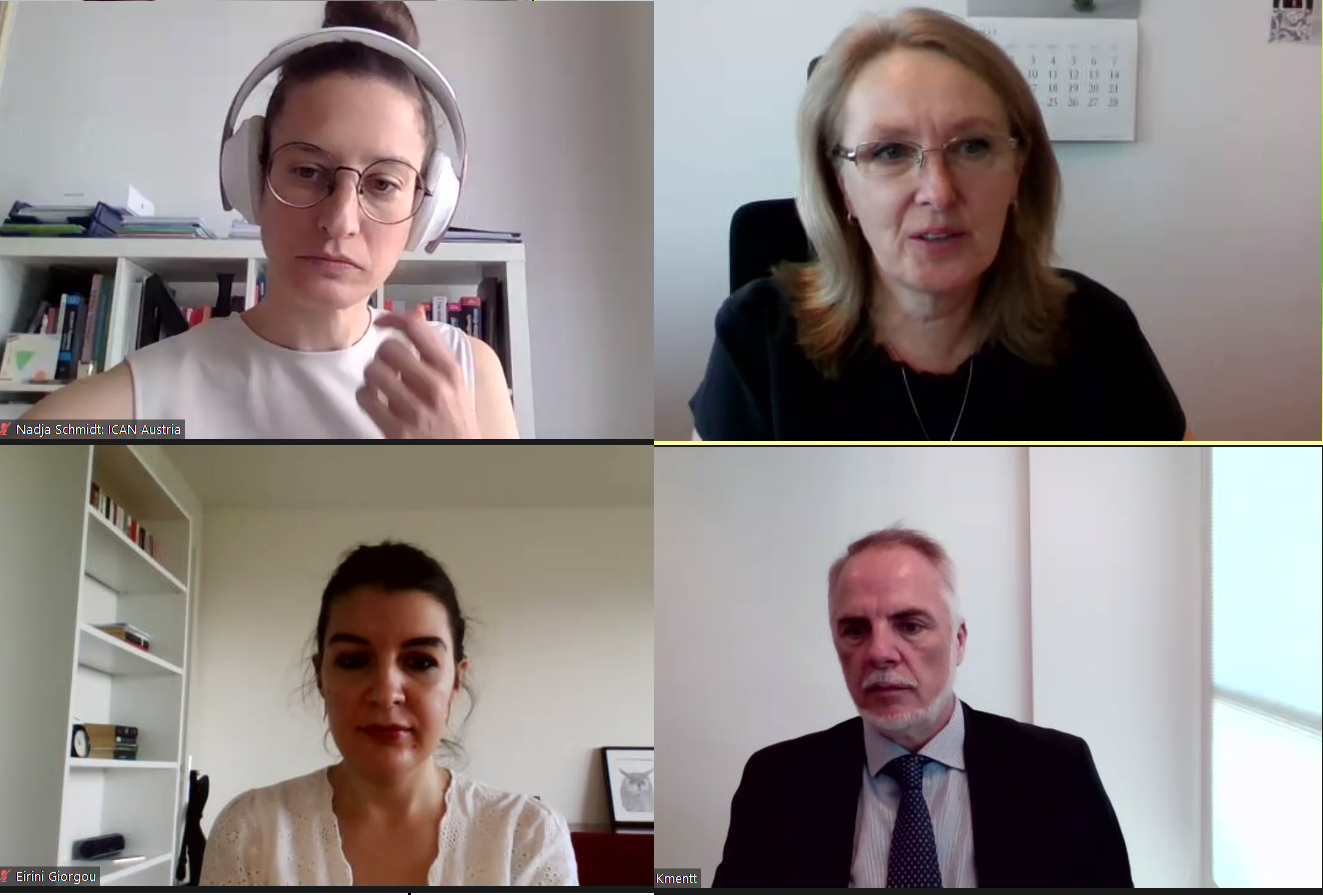
On 20 May 2022, the VCDNP held a webinar focused on the First Meeting of States Parties of the Treaty on the Prohibition of Nuclear Weapons (TPNW), which will take place in Vienna, Austria, from 21 to 23 June 2022. The event featured Ambassador Alexander Kmentt, President-Designate of the First Meeting of States Parties to the TPNW, Dr. Eirini Giorgou, Legal Advisor at the International Committee of the Red Cross, and Dr. Nadja Schmidt, Executive Director of the Austrian Chapter of the International Campaign to Abolish Nuclear Weapons (ICAN). The panel was moderated by VCDNP Executive Director Elena Sokova.
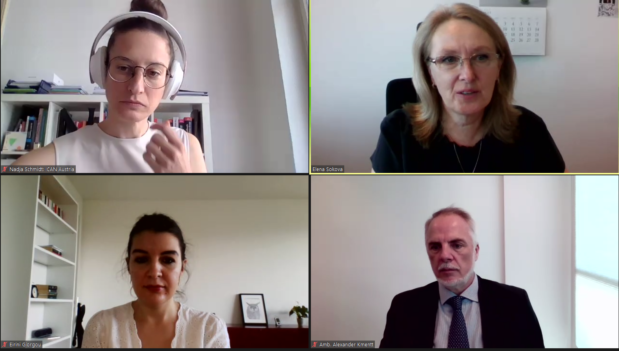
The context in which the First Meeting of States Parties will be convened is vastly different from when preparations for the meeting first commenced. Nuclear risks are at present higher given the explicit use of nuclear threats, the risk of nuclear escalation, and the heightened possibility for miscalculations and misuse of nuclear weapons. Particularly since the war on Ukraine began, deterrence theories are regaining importance and we are seeing several States putting a greater emphasis on nuclear weapons in their defence and security doctrines. Given this context, the First Meeting of States Parties is being held at a pivotal movement. Attention will be placed on the origins of the TPNW and its focus on nuclear weapons themselves as opposed to the States possessing nuclear weapons, as well as the humanitarian consequences and long-term impact the use of nuclear weapons would have on society, especially considering that there is not sufficient capacity to offer an appropriate response should a nuclear weapon be used. The novel positive obligations in the Treaty related to environmental remediation and assistance to victims will be stressed, noting their role in advancing the TPNW’s humanitarian aims.
For this reason a separate Vienna Conference on the Humanitarian Impact of Nuclear Weapons will precede the first meeting of States Parties on 20 June 2022, to remind the international community of the consequences of nuclear weapons use and risks. In addition, civil society is organizing the ICAN Nuclear Ban Forum from 18 to 19 June 2022 to discuss the urgency of the risk posed by nuclear weapons and engage individuals in open conversations on the vulnerability and risk of nuclear weapons, deterrence, international law and the role of civil society.
All the planned events are organized in an inclusive and open manner so that any interested State, whether party to the TPNW or not, and civil society expert can attend. While the deadline has passed for States to apply for funding to attend the First Meeting, encouragement to complete applications was shared given that some funds may still be available. The hope is for broad participation in all events and that the First Meeting will also see high-level participation, signalling the historical significance of the Treaty and its accomplishment of States Parties having taken additional legal obligations to support nuclear disarmament and non-proliferation. In addition, Ambassador Kmentt noted that observers at the meeting will have the right to speak and distribute documents.
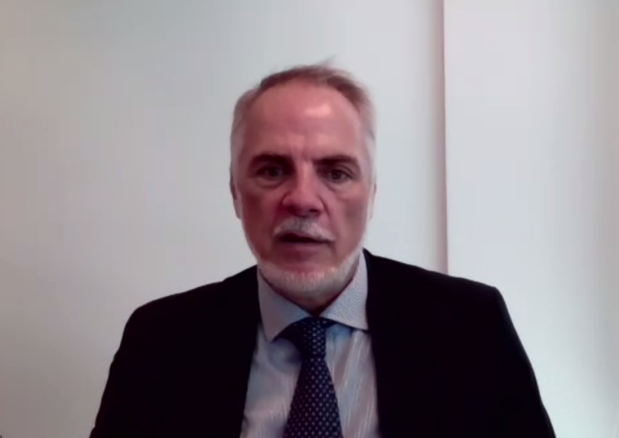
As for the expectations for the First Meeting of States Parties, the President-Designate indicated that facilitators have worked on a range of substantive issues addressed in working papers. The working papers contain action items and draft decisions, which will form the basis for the recommendations that derive from the First Meeting. Some of the action items include, for example, the universalization of the TPNW, the establishment of an advisory group or group of experts to help States Parties upon request, and provide background research, and the complementarity of the TPNW with the Treaty on the Non-Proliferation of Nuclear Weapons. There is also strong hope for a political declaration and action plan to be adopted at the First Meeting. A final report of the First Meeting will outline other decisions taken including organizational and logistical decisions.
The full recording of the webinar can be found below.

